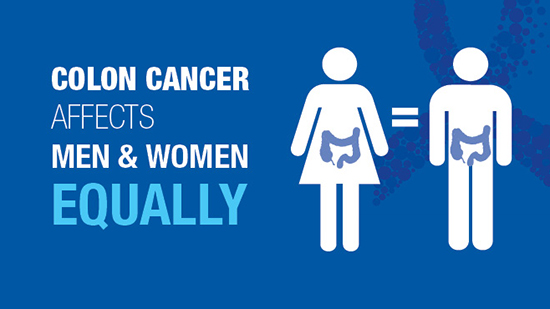Recent Posts
Polyps: Colon cancer culprits

Colon cancer is the third most common cancer diagnosed in the U.S., with about 50,000 people dying each year from this disease. Polyps are one of the key culprits in colon cancer. Since they don't often cause symptoms, it's important to have regular screening tests, such as a colonoscopy. Polyps found in the early stages usually can be removed safely and completely.
In this Q&A, learn more about polyps:
1. What is a polyp?
Typically, a polyp is an abnormal growth in the lining of the colon that protrudes into the colon. The colon is made up of four layers, and polyps can be made of more than one layer.
Screening methods like a colonoscopy or flexible sigmoidoscopy can directly visualize polyps, while stool testing checks for the presence of blood or abnormal DNA shed by these polyps.
2. Why do polyps form?
Polyps form when the body's methods for controlling cell growth falter. Polyps don't develop for any one reason. However, certain mutations need to happen for a polyp to develop. Polyps can become cancerous.
Some people may be predisposed to developing a polyp. It could be genetics or chronic injury to a cell from conditions like ulcerative colitis or Crohn’s disease. Lifestyle also can affect polyp development, including eating foods like red meat, smoking tobacco and drinking alcohol.
3. Are all polyps precancerous?
Not all polyps are precancerous or cancerous. Sometimes the nature of a polyp can be distinguished based on how it looks during a colonoscopy. But only removal for examination under a microscope by a pathologist can accurately determine if a polyp is precancerous.
4. What are precancerous polyps?
Precancerous polyps are those that can become cancerous over time if they aren't removed. The most common polyps are tubular adenomas, sessile serrated adenomas and hyperplastic polyps. These names are based on what the polyps' cells look like under a microscope. Tubular and sessile serrated adenomas generally are considered precancerous.
5. If polyps are taken out, do I need another colonoscopy?
Yes. Even if your colonoscopy showed no polyps or if all polyps were taken out, you can still develop new polyps in the future. That's why it's important to have a colonoscopy whenever your health care professional recommends it. The timing of your next colonoscopy usually depends on the number and size of the polyps removed.
6. When should I get screened?
Most people should begin screening for colorectal cancer after turning 45 and then continue getting screened at regular intervals.
However, you may need to be tested earlier than 45, or more often than others, if:
- You or a close relative have had colorectal polyps or colorectal cancer.
- You have an inflammatory bowel disease, such as Crohn’s disease or ulcerative colitis.
- You have a genetic syndrome such as familial adenomatous polyposis (FAP) or hereditary nonpolyposis colorectal cancer (Lynch syndrome).
By Mayo Clinic Health System staff.





